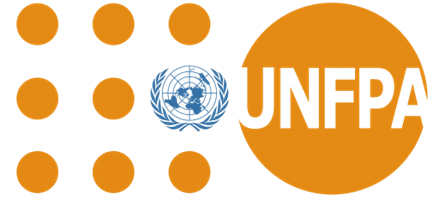UNFPA’s vision is that of a world where every pregnancy is wanted, every childbirth is safe, and every individual’s potential is fulfilled. Since its inception, UNFPA has been at the forefront of advocating for reproductive health and rights, promoting gender equality, and supporting countries in developing sustainable population policies and programmes.
The UNFPA was established in 1969 as a specialized agency of the United Nations in response to the growing global awareness about the dynamic interaction between demography and development. In 1994, at the International Conference on Population and Development in Cairo, women’s reproductive health was placed at the heart of our mandate, moving from human numbers to human rights.
The Representation Office in Brussels is responsible for political and programmatic engagement and advocacy with the European Union (EU) institutions, the Organization of African, Caribbean and Pacific States (OACPS) and civil society. The Representation Office in Brussels is also responsible for the partnership with the Netherlands and Belgium.
In accordance with the 2030 Sustainable Development Agenda, UNFPA’s thematic focus areas are:
- Sexual and reproductive health: UNFPA plays a pivotal role in ensuring access to reproductive health services and rights for all individuals. This includes providing maternal healthcare, family planning resources and services related to sexual and reproductive health;
- Population and development strategies: UNFPA supports countries in demographic data collection, analysis, and the implementation of policies that leave no one behind;
- Gender-based violence: UNFPA fights to eradicate violence against women, including harmful practices such as child marriage and female genital mutilation;
- Youth empowerment: UNFPA supports the acquisition and development of life skills for young people and promotes positive masculinity among young men and boys.
UNFPA focuses on three transformative results:
- Zero maternal mortality;
- Zero unmet need for family planning;
- Zero gender-based violence, including harmful practices such as child marriage and female genital mutilation.
How do we do it?
- We support governments and operate in over 150 countries, both in development contexts and in humanitarian action, to achieve the three transformative results;
- We localize our efforts by working work closely with civil society partners;
- We leverage the influence of others, like international financial institutions and the private sector, to achieve these objectives.
UNFPA’s impact worldwide:
254 million couple-years of protection for contraceptives procured by UNFPA
116 million people reached with sexual and reproductive health services
3 million lives saved, including in humanitarian contexts
See more on UNFPA’s results portal – https://www.unfpa.org/data/results
With the support of the European Union, in 2022*:
- 700,413 unintended pregnancies prevented
- 111,300 women and young people reached with sexual and reproductive health services
- 270,300 sexually transmitted infections prevented by providing female and male condoms
- 3,127,000 years of protection provided from unintended pregnancy
- 6,201 HIV infections prevented by providing female and male condoms
- 74,200 women, adolescents and youth received high-quality services related to harmful practices
- 339,200 marginalized girls reached by life skills programmes
*Key results are illustrative only and reflect a calculation based on the donor’s contribution proportionally to UNFPA’s overall results.
Support from our partners allows us to invest in long-term projects around the world and in emergency humanitarian settings. Each of our collaborations with partners are uniquely positioned to help us achieve our transformative results in an innovative and inclusive manner.
We work with academia, businesses, philanthropy, civil society and parliamentarians to develop ideas that make best use of their time, expertise, resources and donations.
Read more about our partnerships:
https://www.unfpa.org/strategic-partnerships
UNFPA is committed to working together with the entire UN system to champion the Sustainable Development Goals. We encourage you to read up and see how you can support our efforts towards peace, equality, and dignity on a healthy planet.

